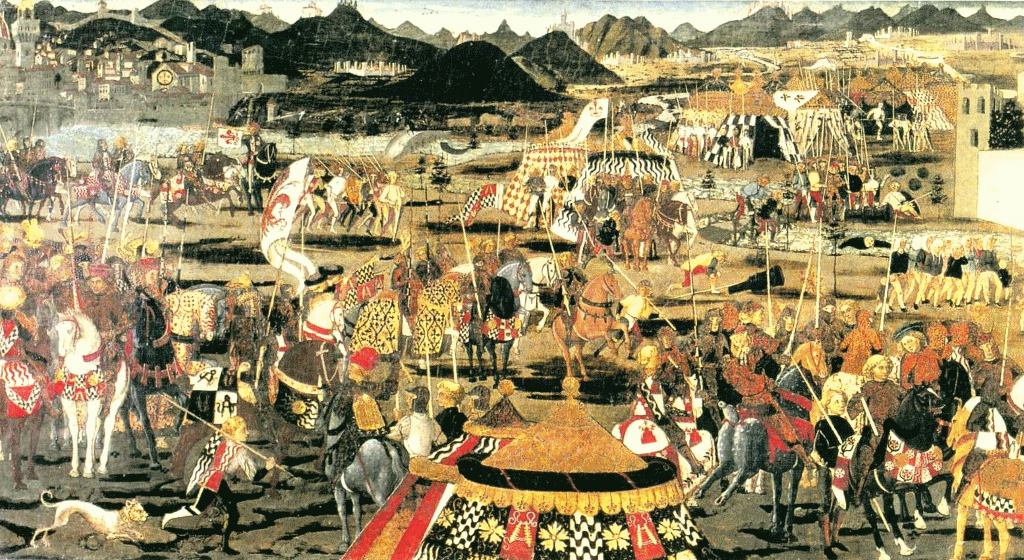I have come across the profession of "uomo di campagna" on a marriage record from 1822 in Belmonte Mezzagno, Palermo, Sicily. The literal translation seems to be countryman.
On the Atto della Solenne Promessa, the groom, the groom's father and the bride's father are listed as "uomo di campagna". However, in the Allegati on the Atto di Notificazione, the professions are more specific. The groom and bride's father are listed as "bordanaio" or muleteers. The groom's father is listed as "proprietario" or landowner.
These seem to be two very different classes of workers. Has anyone else seen this or have any insights into the class of worker that "uomo di campagna'" implies?
Thanks,
Jim
Uomo di Campagna
Re: Uomo di Campagna
Jim
I have read that, In the fifteenth century, an “uomo di campagna” was a man who lived in the country and bricked the houses of the contadini, or peasants. And, when this kind of employment was lacking, he even went so far as to milk cows along with the contadini. But I believe that, during the early 1800s and now, the term “uomo di campagna” was/is just a synonym for the word “contadino,” or “peasant,” or even for the term “campagnolo,” countryman. He was a “man of the country” as opposed to being “a man of the city.” In that respect, the connotation is that he was boorish and uneducated. He earned his living by working on land, which he did not necessarily own. Even if he was fortunate enough to own a small parcel of land, after the unification of Italy, there was a land shortage. Thus, many peasants who did own a small parcel, actually lost their land, and were reduced to becoming a day-laborers to find employment. Supposedly, even as recently as the year 1901, only 10% did own their own land, but the land they owned was so small in size that they could not earn a living from it.
I think the concept “uomo di campagna” indicates a member of a low socioeconomic class of workers, whereas “propertario,” which you also mention, indicates a member of a higher class. But I also believe that extenuating factors in a society, at any given period of time, contributed to changes in occupation and/or even to changes in social class.
Hopefully someone else will weigh in on this discussion. I found this a difficult occupation to research online, as the many books I do own, do not discuss this particular occupation.
Erudita
I have read that, In the fifteenth century, an “uomo di campagna” was a man who lived in the country and bricked the houses of the contadini, or peasants. And, when this kind of employment was lacking, he even went so far as to milk cows along with the contadini. But I believe that, during the early 1800s and now, the term “uomo di campagna” was/is just a synonym for the word “contadino,” or “peasant,” or even for the term “campagnolo,” countryman. He was a “man of the country” as opposed to being “a man of the city.” In that respect, the connotation is that he was boorish and uneducated. He earned his living by working on land, which he did not necessarily own. Even if he was fortunate enough to own a small parcel of land, after the unification of Italy, there was a land shortage. Thus, many peasants who did own a small parcel, actually lost their land, and were reduced to becoming a day-laborers to find employment. Supposedly, even as recently as the year 1901, only 10% did own their own land, but the land they owned was so small in size that they could not earn a living from it.
I think the concept “uomo di campagna” indicates a member of a low socioeconomic class of workers, whereas “propertario,” which you also mention, indicates a member of a higher class. But I also believe that extenuating factors in a society, at any given period of time, contributed to changes in occupation and/or even to changes in social class.
Hopefully someone else will weigh in on this discussion. I found this a difficult occupation to research online, as the many books I do own, do not discuss this particular occupation.
Erudita
-
JSpero1162
- Newbie

- Posts: 16
- Joined: 26 Oct 2020, 15:39
Re: Uomo di Campagna
Thank you. This actually makes a lot of sense based on the subsequent records for these individuals.
Re: Uomo di Campagna
Happy to hear that you found the research helpful.
Erudita
Erudita



